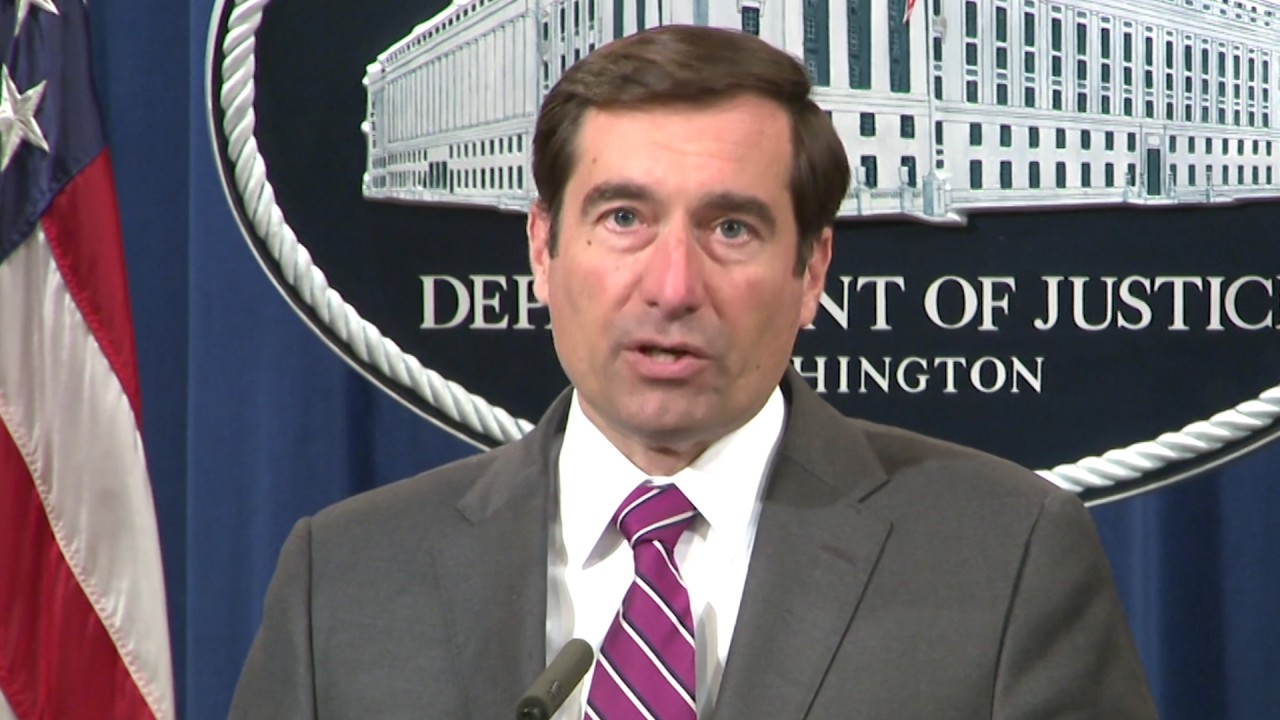
China ‘set to shut US consulate’ in response to Houston closure, and denies Covid-19 is a factor
- Beijing believed to be shutting Chengdu consulate, a strategically important post given American interest in Tibet
- The move follows the sudden shutdown of Beijing’s representative office in Houston
A source briefed on the matter said the US consulate in the southwestern city of Chengdu would be the target for China’s retaliation.
Officials from the two sides traded barbs over the Houston closure order ahead of US Secretary of State Mike Pompeo delivering a speech on China.
But Chinese foreign ministry spokesman Wang Wenbin hit back at the allegation, calling it “nonsense”. He did not say which US consulate may be targeted when asked to elaborate on China’s vow to retaliate.
“In response to the unreasonable action of the United States, China will take necessary counter-measures to protect its legitimate interest,” Wang said.
He dismissed suggestions that the latest row was related to delays in US diplomats being allowed to return to their embassies and consulates in China because of travel restrictions and quarantine rules introduced by Beijing to contain the spread of Covid-19.

02:23
China calls US order to close Houston consulate ‘political provocation’
Wang said some US diplomats had returned in June to their consulate in Wuhan, which had been temporarily closed on January 23 when the city entered a strict lockdown as a containment measure.
“China has always facilitated the lawful operation of the US consulate,” he said.
In another development deepening concerns over Chinese diplomatic missions in the US, the US Federal Bureau of Investigation has said it believes that a Chinese researcher, accused of visa fraud for hiding her affiliation with the Chinese military, has been holed up in the Chinese consulate in San Francisco for a month.
Filings in the US District Court in San Francisco said that Juan Tang, who worked at the University of California, Davis, falsely claimed on her visa application that she had not served in the Chinese military. But investigators found photos of her in a Chinese military uniform and discovered she had worked as a researcher at China’s Air Force Military Medical University.
The FBI questioned her on June 20 and she later went to the consulate, where the bureau believes she remains.
Tang was charged with visa fraud on June 26. US law enforcement cannot enter a foreign embassy or consulate unless invited, and certain top officials such as ambassadors have diplomatic immunity.
The Chinese consulate in Houston, the fourth largest city in the US, was the first of five that Beijing opened in the country after relations were established in 1979, followed by ones in San Francisco, New York, Chicago and Los Angeles.
Houston consulate offices a long-time landmark of US-China relations
Washington maintains five consulates on the Chinese mainland – in Guangzhou, Shanghai, Shenyang, Chengdu and Wuhan – as well as a consulate general for Hong Kong and Macau. There were initial suggestions that the US consulate in Wuhan would be targeted by Beijing for closure.
The US consulate in Chengdu opened in 1985 and is strategically important because it covers the country’s southwestern region, including the provinces of Sichuan, Yunnan, Guizhou, Tibet autonomous region and Chongqing.
Long Xingchun, president of the Chengdu Institute of World Affairs, an independent think tank, said closing the consulate in Wuhan would not cost the US much, but closing the one in Chengdu would create a bigger impact.
“Tibet is one of the concerns for the US consulate in Chengdu. The US is more concerned about Tibet and Xinjiang,” he said.

01:29
US indicts Chinese men for hacking related to coronavirus vaccine data and defence secrets
Wang Lijun reportedly “left of his own volition” after 30 hours inside the building and later reported giving evidence which incriminated Bo at a meeting with US consular officials during his time there.
Jim Mullinax, the US consul general in Chengdu, declined to comment on a potential consulate closure.
Additional reporting by Jun Mai, Kristin Huang, Sarah Zheng and Reuters

